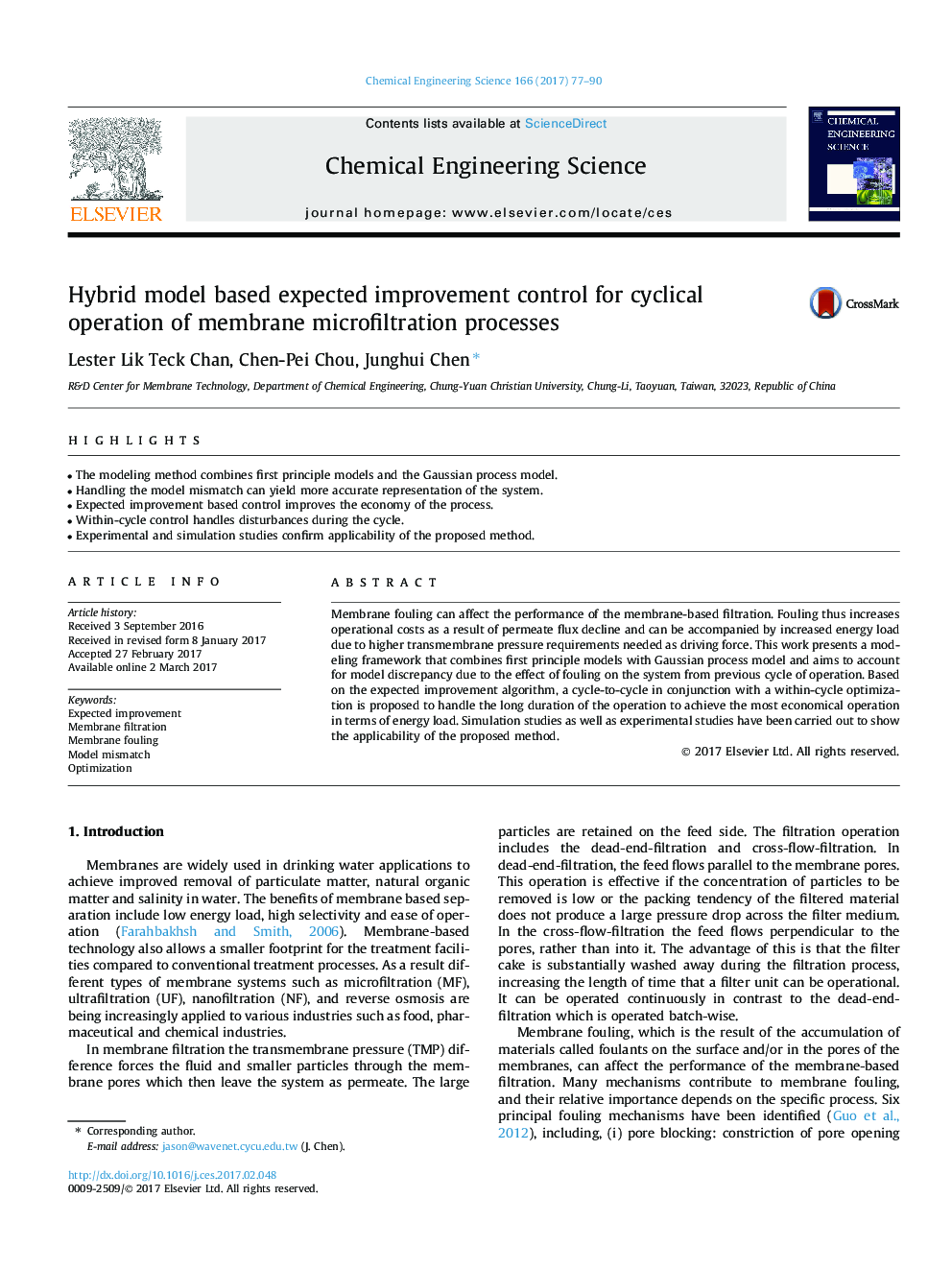| Article ID | Journal | Published Year | Pages | File Type |
|---|---|---|---|---|
| 6467623 | Chemical Engineering Science | 2017 | 14 Pages |
â¢The modeling method combines first principle models and the Gaussian process model.â¢Handling the model mismatch can yield more accurate representation of the system.â¢Expected improvement based control improves the economy of the process.â¢Within-cycle control handles disturbances during the cycle.â¢Experimental and simulation studies confirm applicability of the proposed method.
Membrane fouling can affect the performance of the membrane-based filtration. Fouling thus increases operational costs as a result of permeate flux decline and can be accompanied by increased energy load due to higher transmembrane pressure requirements needed as driving force. This work presents a modeling framework that combines first principle models with Gaussian process model and aims to account for model discrepancy due to the effect of fouling on the system from previous cycle of operation. Based on the expected improvement algorithm, a cycle-to-cycle in conjunction with a within-cycle optimization is proposed to handle the long duration of the operation to achieve the most economical operation in terms of energy load. Simulation studies as well as experimental studies have been carried out to show the applicability of the proposed method.
